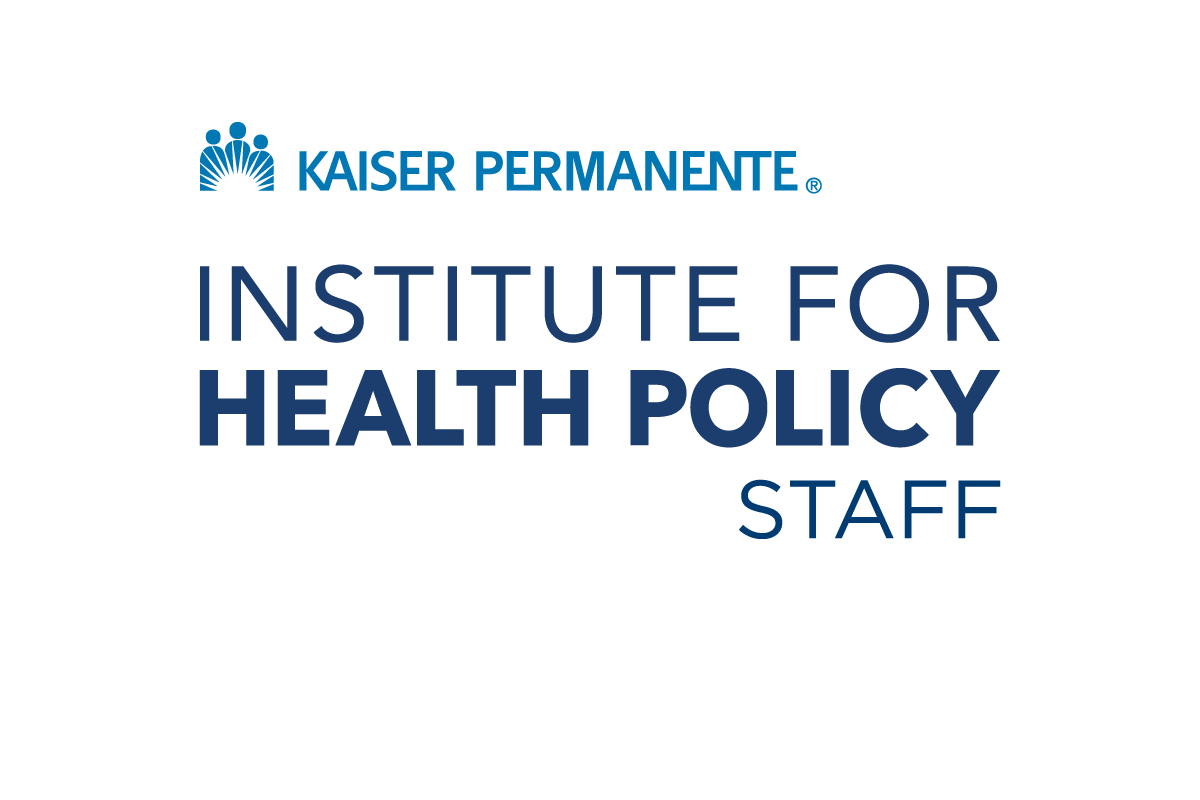
Shannon McMahon, MPA, joined Kaiser Permanente’s Government Relations department in August as the executive director of Medicaid policy. In this role, she provides public policy, regulatory and legislative advice on Medicaid and other complex and strategic public policy issues. We sat down with Shannon to hear her insights about the future of Medicaid and her work at Kaiser Permanente.
Tell us about your experience working with Medicaid in Maryland.
Prior to joining Kaiser Permanente, I spent about two-and-a-half years as the deputy secretary of health care financing and director of the Maryland Medicaid program at the Maryland Department of Health.
In that role, I was responsible for overseeing policy, operations, financing, eligibility, plan purchasing, pharmacy, and external affairs for the state’s Medicaid program, which provides health care coverage and services to over 1.3 million Maryland residents.
It had always been a goal of mine to lead a Medicaid program and I am enormously grateful for both the experience and the trust that the secretary of health and the governor placed in me.
Every day was different and challenging – whether I was engaging with stakeholders, developing the budget, managing large procurements or developing program and policy solutions to address the opioid epidemic – I was in the hub of setting the health care agenda for the state, along with many brilliant, committed state staff.
Our two biggest accomplishments include a complete re-brand of Maryland Medicaid and the creation of several new models of payment and delivery of services for social determinants of health.
What are some challenges that Medicaid currently faces?
One of the other biggest challenges facing Medicaid is addressing care delivery for individuals eligible for both Medicare and Medicaid. This group of members is incredibly diverse and we have barely scratched the surface when it comes to the direction of Medicare-Medicaid dual models, and how those models can best serve the needs of members.
I believe Medicaid 2.0 will be about shifting the dialogue from public assistance to Medicaid as a health insurance product that is provided on a continuum of universal access to coverage.
What most excites you about your work at Kaiser Permanente?
I’m excited to be involved in creating an internal policy council focused on Medicaid, which will work to support the deliberations and decisions of Kaiser Permanente’s Health Policy Committee. Through this council, I’ll be able to work with colleagues to start thinking about how Kaiser Permanente can help shape the broader dialogue about the future of Medicaid.
I also enjoy engaging with the national Medicaid team to address operational issues. Having a seat at their leadership table and being able to support their operational activities in alignment with the Government Relations strategy and organizational thought leaders has been really rewarding.
What makes you optimistic about the future of Medicaid?
The fact that, increasingly, people recognize that services that address social determinants of health must be part of the continuum of care and coverage for Medicaid members makes me incredibly hopeful.
Kaiser Permanente is well-positioned to be a leader in this effort because of our integrated model and deep-rooted commitment to community health.
What keeps you busy when you’re not thinking about ways to improve Medicaid?
My two kids, ages 11 and seven-and-a-half, keep me very busy. I’m looking forward to being a parent sponsor of the fifth-grade student Congress this spring, which will come as no surprise to anyone who knows of my love of political discourse.
I vociferously read non-fiction and Wine Spectator, and listen to health services research podcasts and then try to apply all those learnings in my work and home life, as appropriate.
Since 2012, I have been a charter member of the American Council of Political Leaders (ACYPL). Though ACYPL, I was selected to travel with two foreign diplomatic delegations, first to Vietnam and Thailand in 2012, and again this past summer as the alumni escort to China. I also help plan programming when delegations come to the U.S. and am looking forward to showing off Kaiser Permanente’s Center for Total Health when future delegations come to Washington D.C.
Finally, I plan to take up surfing this winter in Florida where I grew up and still often visit with family.
